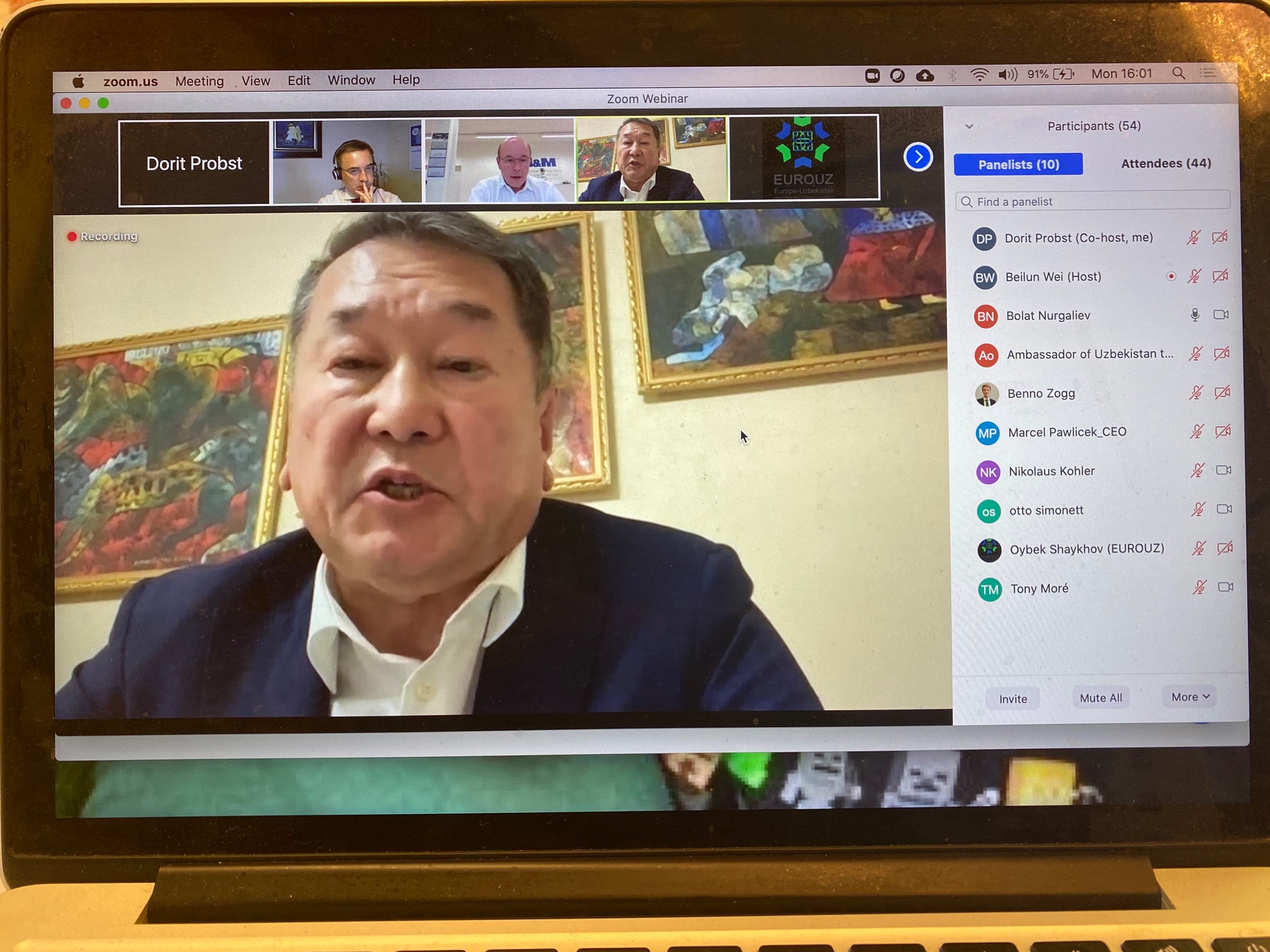
JCC fifth New Silk Road Forum examines impact of COVID on BRI
„When President Xi Jinping first announced China’s One Belt, One Road initiative he did so at Nazarbayev University, Astana, Kazakhstan on September 7, 2013. It was highly symbolic that he chose Kazakhstan to make the announcement.
President Xi said: “Over the past 20 years and more, the relations between China and Eurasian countries have developed rapidly and the ancient Silk Road has gained fresh vitality. In a new way, it is taking the mutually beneficial cooperation between China and Eurasian countries to a new height.”
The BRI is creating two new trade corridors – one overland, the other by sea – which are connecting China with its neighbours in the west: Central Asia, the Middle East and Europe. In concrete terms this means the development of infrastructure (transportation, energy) and trade linkages through Central Asia and the South Caucasus west to Europe and South via Afghanistan to Pakistan and beyond which has significant implications for countries in JCC’s portfolio.
China’s efforts to forge stronger links with its neighbours and more widely with its trading partners around the world are constructive. The idea ist hat enhancing bilateral trade by building transport infrastructure and concluding trade agreements will ultimately have the effect of stimulating regional and global trade as well.
The advent of the COVID pandemic which has upended our lives also has implications for the BRI project.
Concretely, the outbreak has also led to disruptions in BRI projects which often depend heavily on labor and supplies which were prevented from reaching the sites as a result of the lockdowns. Several major BRI projects — such as those in Indonesia, Malaysia, Cambodia, Sri Lanka and Pakistan — have been stalled by lockdowns.
On an economic level, “Many countries under the BRI initiative have borrowed heavily from China to invest in new projects, but the pandemic is disrupting economies and will complicate repayment plans. Currently, low-income countries under the BRI are already asking China for debt relief.
In terms of globalisation, COVID could have an impact on traditional arteries of FDI and trade, and the way firms operate. Maybe European companies will redirect investment into reshoring, nearshoring and stockpiling. Also, there could be a diversification of supply chains away from a single country, traditionally China, to more regional dispersal. So will China’s role as a manufacturer and assembler in global value chains change ?
At the fifth JCC New Silk Road Forum that took place as a webinar on September 28, 2020, speakers examined these and other questions relating to infrastructure, logistics, supply chains and the environment. The event was organized in partnership with the Swiss-Chinese Chamber of Commerce (SCCC) for the third year in a row.
